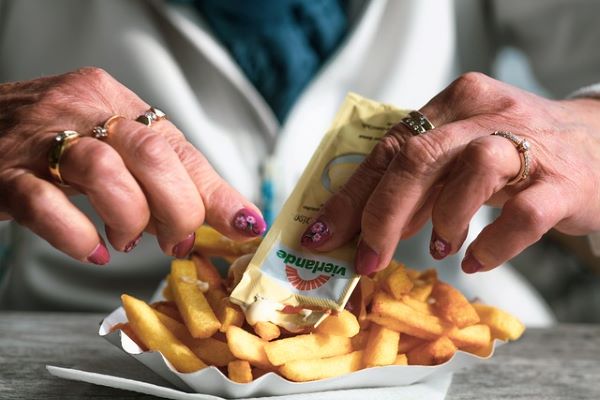Have you ever found yourself feeling a bit “off” after finishing a round of antibiotics? If so, you’re not alone. While antibiotics are lifesavers, they don’t just target harmful bacteria; they can also wipe out beneficial gut bacteria, leaving your digestive system—and overall health—a bit out of whack. But don’t worry, there are ways to bounce back. Let’s dive into how you can restore gut health after antibiotics with some simple and effective strategies.
Also, read: Now Know How Does Gut Health Affect Mental Well-being?
What Happens to Your Gut After Antibiotics?
Antibiotics work by killing bacteria that cause infections, but they don’t discriminate. This means the good bacteria in your gut can also take a hit. Your gut microbiome, which plays a role in digestion, immunity, and even mental health, may lose its balance, leading to:
- Digestive discomforts like bloating or diarrhea.
- Weakened immunity, makes you more vulnerable to infections.
- Possible mood changes or fatigue due to the gut-brain connection.
The good news? Your gut is resilient, and with the right steps, it can heal and thrive again. (Source)
1. Embrace Probiotic-Rich Foods
You’ve probably heard the term “probiotics” tossed around a lot. These are live bacteria that can help replenish the good bacteria in your gut. Some of the best sources include:
- Yogurt: Look for labels that say “live and active cultures.”
- Kefir: A tangy, drinkable yogurt packed with probiotics.
- Fermented foods: Think sauerkraut, kimchi, miso, and tempeh.
These foods introduce beneficial bacteria and can be a delicious addition to your diet. For example, a bowl of miso soup or a spoonful of sauerkraut with your meal might just be the gut boost you need.
2. Consider Probiotic Supplements
If fermented foods aren’t your thing, probiotic supplements could be a handy alternative. But here’s a quick caveat: not all probiotics are created equal. Research suggests strains like Lactobacillus rhamnosus and Bifidobacterium may be particularly helpful after antibiotic use.
One study even highlighted that taking probiotics during and after antibiotics could reduce the risk of diarrhea—a common side effect. However, it’s always wise to consult your doctor before starting any supplement. You wouldn’t want to waste money on something that doesn’t work, right? (Source)
3. Fuel Your Gut with Prebiotics
Here’s a fun fact: Prebiotics are the “food” that probiotics need to thrive. Think of it like fertilizer for your gut garden. Foods rich in prebiotics include:
- Bananas (especially slightly green ones)
- Garlic and onions
- Asparagus
- Whole grains like oats and barley
Adding these to your meals can encourage the growth of beneficial bacteria, helping to restore balance more quickly.
4. Stay Hydrated
It might sound simple, but drinking enough water is crucial for gut health. Water aids digestion and helps maintain the mucosal lining of your intestines, which is essential for protecting your gut wall. Plus, staying hydrated can flush out toxins, speeding up recovery. (Source)
5. Limit Processed Foods and Sugar
You know that extra candy bar you were eyeing? You might want to skip it—at least for now. High-sugar diets can feed harmful bacteria and yeast in your gut, further upsetting the balance. Stick to whole, natural foods as much as possible to give your gut a fighting chance.
6. Don’t Forget About Fiber
Fiber is a superstar when it comes to gut health. Soluble fiber, found in foods like oats, apples, and beans, feeds good bacteria and promotes regular digestion. Insoluble fiber, found in foods like whole grains and vegetables, adds bulk to your stool. Both types are essential for a happy, healthy gut. (Source)
7. Move Your Body
Did you know exercise can influence your gut microbiome? Regular physical activity, whether it’s a brisk walk or a yoga session, has been shown to increase the diversity of gut bacteria. Plus, exercise helps reduce stress, which can also impact gut health.
8. Manage Stress
Ever had a “gut feeling” or butterflies in your stomach? That’s the gut-brain connection at work. Stress can throw your gut out of balance, so finding ways to relax is key. Try meditation, deep breathing, or even just a long bath with your favorite book.
FAQs About Restoring Gut Health After Antibiotics
Q: How long does it take for the gut to recover after antibiotics?
A: It varies from person to person, but studies suggest it can take anywhere from a few weeks to several months for your gut microbiome to fully recover.
Q: Should I take probiotics while on antibiotics?
A: Yes, taking probiotics during antibiotic treatment can help reduce side effects like diarrhea. Just make sure to space them out—take probiotics a few hours after your antibiotics.
Q: Can I restore my gut health naturally, or do I need supplements?
A: Many people can restore gut health naturally through diet and lifestyle changes. However, supplements can be helpful for some, especially if diet alone isn’t cutting it.
Q: What should I avoid while restoring gut health?
A: Limit processed foods, sugary snacks, and alcohol. These can feed harmful bacteria and slow down the recovery process.
In Conclusion: A Gut-Friendly Game Plan
Restoring gut health after antibiotics isn’t about making drastic changes; it’s about small, intentional steps. Incorporate more probiotic-rich and fiber-packed foods into your meals, drink plenty of water, and find ways to de-stress. Your gut will thank you!
Remember, everyone’s body is different. What works for one person might not work for another, so listen to your body and don’t hesitate to seek professional advice if needed. With a little patience and effort, you’ll be back to feeling your best in no time.





